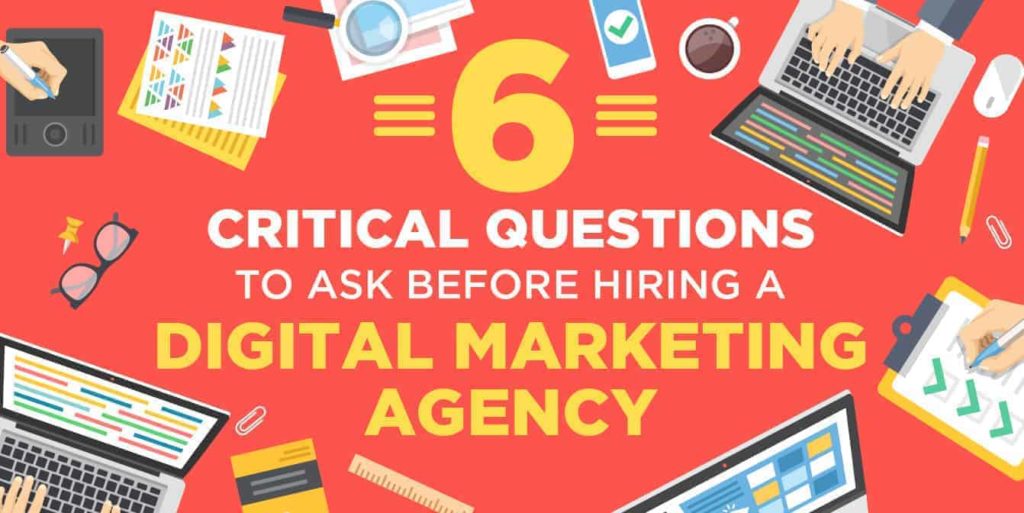A strong business relationship, like a strong marriage, requires a lot of give and take.
Your agency needs to have the knowledge, expertise, and moxie to give you a strong digital presence that businesses need to succeed. They have to stay on top of the latest developments in digital marketing and be ready to try new strategies when the old ones don’t work.
As a client, you need to communicate your needs openly and clearly. You need to be responsive to feedback. You have to trust your agency enough to let them seek out opportunities to build your brand, and when they do, be able to let them know what you think.
You have to trust your agency enough to let them seek out opportunities to build your brand. #digitalmarketing Share on XOf course, just as in marriage, there’s also an undefinable element that can make a business relationship not just good, but great. It’s a sense of fit, of “clicking” – of knowing that you and your agency won’t have trouble staying on the same page.
This isn’t something you can find out from an agency website. When you’re thinking of hiring a digital marketing agency, you’ve got to start by asking them the right questions. In addition to asking about things like their client base, history of success, and other relatively basic information, you’ll want to dig a bit deeper with these 6 questions.
Who will manage my account and who will do the work?
When it comes to these questions, what you’re ensuring is that your account won’t be completely outsourced to a different company.
Many digital marketing agencies outsource some of their services – development, perhaps, or graphic design – but the bulk of what they’re doing for you really should be handled in-house.
This is because too much outsourcing almost always means lower quality. Plus, if they’re outsourcing everything from creative to analytics, you’re essentially paying them for little more than administrative and management tasks.
How does our business compare to the rest of your clients?
If your contact says “What other clients?” then run for the hills. Seriously, though, there are a couple of potential answers that you’ll want to explore more fully.
If your contact tells you that your business is by far their biggest client, you’ll want to ask a few follow-up questions.
There’s nothing wrong with being an agency’s biggest client, but it’s all about degrees. If you’re a global company with millions in annual revenue, and all their other clients are locally-owned small businesses, you may want to ask how they’re prepared to meet your – necessarily much larger – needs.
On the other hand, if the agency mainly services global companies with millions in revenue and you’re a smaller business, you need to make sure that your account will be just as important as their other clients. Will your business have its own account manager? Is the agency prepared to work with your budget? Are they as versed in running locally-focused campaigns as they are national or global ones?
There’s no hard and fast rule here, but if the fit feels a little off, you may want to look elsewhere.
How closely will you work with my internal team?
As we mentioned earlier, a client-agency relationship is all about communication. The agency should have a formal structure in place to ensure that communication lines stay open – weekly phone calls, regular email updates, etc.
This is generally laid out in the contract. If it’s not, you probably want to get something in writing to ensure that the agency is committed to regularly communicating with you.
However, there should also be a more informal culture of supportive communication at the agency. You want to feel confident that your account manager will be responsive to your team’s requests and prompt in returning emails and calls – even if it’s to suggest that you table a discussion until your regularly scheduled phone call. Even if she can’t chat several times a week, you should feel as though your requests, concerns, or comments are heard and acknowledged.
A good digital marketing agency will also be forthright in sharing strategy, KPIs, etc. with your team. An agency that guards this information with secrecy isn’t truly interested in helping you grow your business. And that, after all, is the whole reason you’re looking for a digital marketing agency.
A good digital marketing agency will be forthright in sharing strategy, KPIs, etc. with your team. Share on XHow will you measure results and ROI?
The success of a marketing campaign can seem like a complex thing to measure. How do you measure things like brand awareness, people’s attitude toward your brand, or how much they like your content?
The answer? Through analytics. A good digital marketing agency will have the tools and skills to measure key performance indicators (KPIs) like unique visitors to your site, your bounce rate, etc. A great one, however, will work closely with you to identify the KPIs that are truly relevant to your marketing goals. Then they’ll use those to drive progress and inform future campaigns.
For example, if your marketing goal is to raise your CEO’s cachet as a thought leader in your industry, a good KPI to track would be inbound links – how many other sites are linking to your content. Another would be a specific conversion rate, such as how many people who come to the site are signing up for your newsletter.
If your marketing goal is to raise brand awareness for your new line of designer shoes, relevant KPIs might be more social media-oriented: Facebook likes, retweets, Twitter mentions, and other measures of how many people are talking about your product.
Your digital marketing agency should be transparent about the KPIs they’re measuring and willing to shift tactics or directions if the results warrant it.
A great digital marketing agency identifies KPIs that are relevant to your goals. Share on XHow will you handle reporting and information sharing?
This goes back to the issue of communication. How regularly will your digital marketing agency report results back to you, and in what format?
This should absolutely be outlined in your contract, as without regular reports you won’t know how your campaign is doing – and, by extension, how well your digital marketing agency is serving you. A typical structure would be offering a formal report each month detailing your analytics across the marketing campaigns they’re running for you.
Since any marketing effort will take some time to get results (although digital marketing typically brings in results more quickly than traditional ones), you will need to exercise some patience.
It’s generally best to wait for the formal report, rather than ask for numbers shortly after a campaign is launched. This is because your numbers will be much more accurate if they’ve been measured for a decent amount of time, rather than a few days or a week.
How do your different departments collaborate?
Ask the agency how their teams share information, and how they create strategies for each client. Share on XDepending on the organization, digital marketing agencies may have different departments to handle different aspects of their work: Social Media, SEO, Content, Influencer Outreach, etc.
If you’re engaging an agency for more than one of these services, you want to be assured that the departments’ teams will be working toward a cohesive strategy. It won’t do you much good to have the content team pushing hard on a few select topics, while the SEO team is optimizing your site for keywords related to different topics.
Ask the agency how their teams share information, and how they create strategies for each client. Will your blog posts spur social media campaigns? Will your social media campaigns tie into your SEO? You’ll get the best results when all these things are working in harmony, pushing toward agreed-upon goals.
Hiring a digital marketing agency can give your marketing efforts the boost they need – if you choose the right one. Want to know more about how digital marketing can help your business? Read our post “51 Ways to Dominate Your Industry Via Digital Marketing.”









